Our Mission
“Celebrating our diverse faiths and spiritual traditions, bringing people together to build understanding and serving our community.”
Who We Serve
We count as our constituents the 800 congregations in the City of San Francisco, their respective judicatories, sectarian educational and healthcare institutions, and the faith-based social service agencies that provide the social safety net for our most vulnerable residents.
Convening, Communicating and Advocacy
The San Francisco Interfaith Council (SFIC) convenes and amplifies the voice of our City’s faith-based community on such issues as homelessness, disaster preparedness response and recovery, civil and human rights, housing affordability, immigration and so much more.
Our Work
During this time of social change in San Francisco, civic leaders and the public view the SFIC as the “go-to” organization for mobilizing our City’s religious communities. Our diverse constituencies turn to us for resources, referral and representation. Our robust relationships and communications network of over 5,600 e-subscribers allow the SFIC to bring together and mobilize San Francisco’s faith-based community to create an effective, combined force for service and issues of public policy, so that we may accomplish together what no single faith entity can do alone.
Our Programs
Monthly Breakfasts
For over 17 years the SFIC has hosted a free public interfaith breakfast on the second Thursday of each month at St. Mark’s Lutheran Church in San Francisco where 100 congregational and lay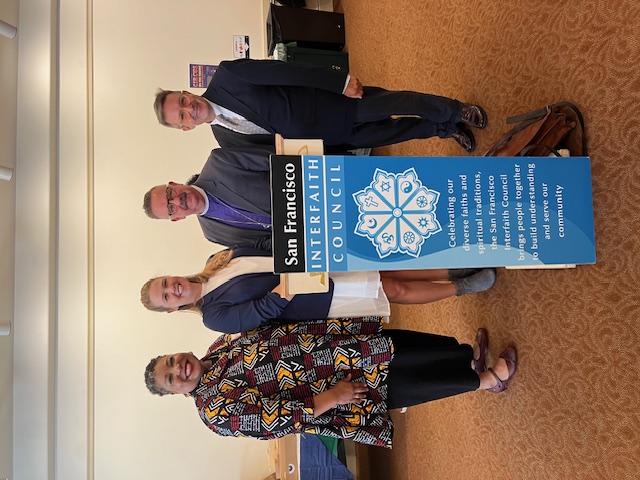 leaders network and share a meal. Speakers from a variety of City departments, civic agencies, NGOs and philanthropic programs discuss their important work, ask faith communities to help spread the word, and offer volunteer opportunities for congregants. An individual gives a “meditation” from his or her religious tradition, and another presents a personal “faith journey.” To appreciate the substantive presentations made we invite you to visit: Monthly Breakfasts
leaders network and share a meal. Speakers from a variety of City departments, civic agencies, NGOs and philanthropic programs discuss their important work, ask faith communities to help spread the word, and offer volunteer opportunities for congregants. An individual gives a “meditation” from his or her religious tradition, and another presents a personal “faith journey.” To appreciate the substantive presentations made we invite you to visit: Monthly Breakfasts
Bay Area Interfaith Leadership Council "We All Belong" PSA Launch
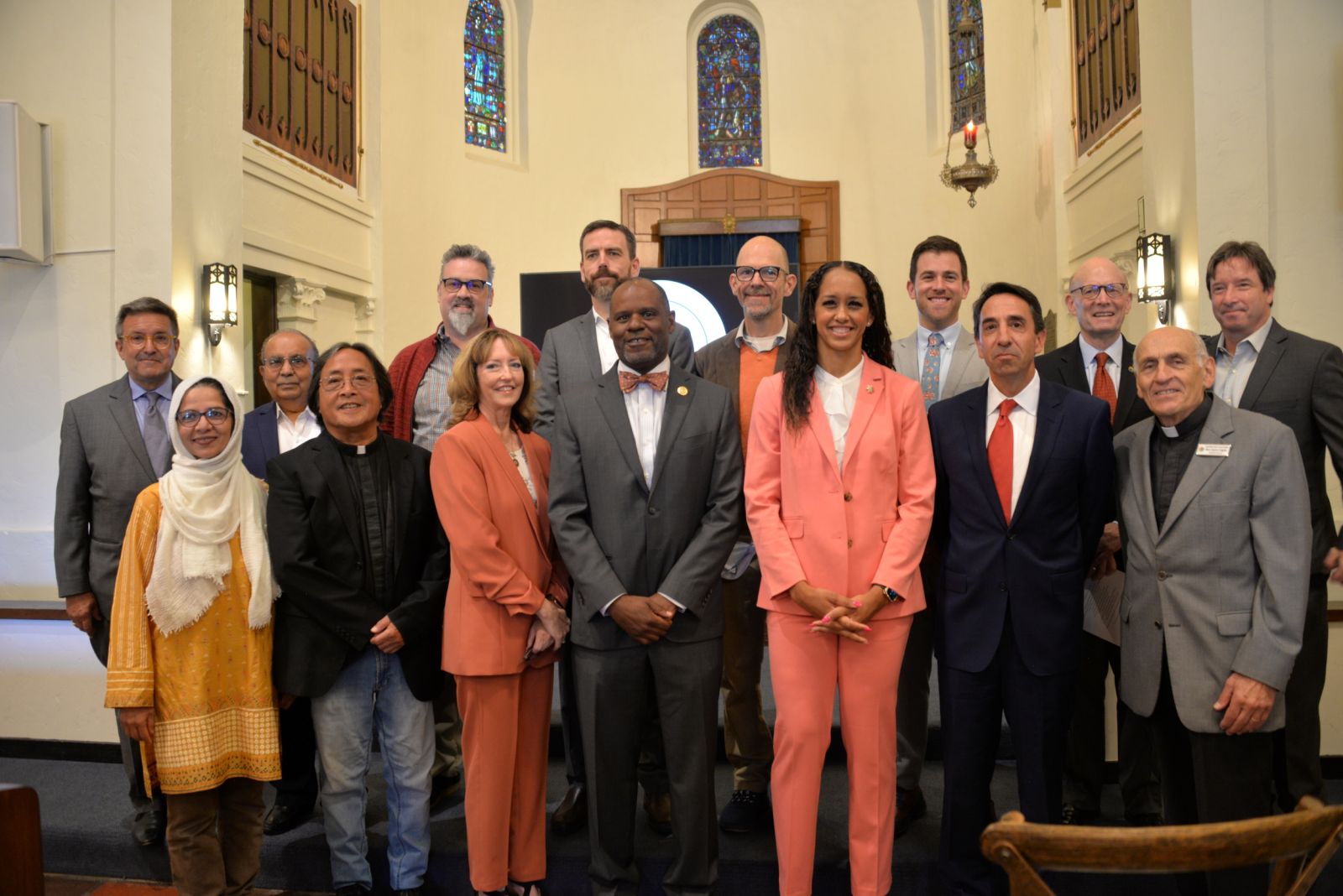
COVID-19 (Coronavirus) Response
The San Francisco Interfaith Council (SFIC) assumed a critical civic leadership role in the City's response to COVID-19. When San Francisco declared its "State of Emergency," in late February 2020, it triggered the activation of the SF Department of Emergency Management's (DEM) "Community Branch," a cohort of stakeholders from San Francisco's diverse sectors, charged with assisting the City in its disaster response efforts. Immediately, the SFIC employed its vast and comprehensive communications network in order to serve as the City's chief liaison to its 800 communities of faith and religious institutions. The SFIC was not only entrusted and became responsible for for conveying the City's official communications, aggressive recommendations and public health orders, but, at the urging of the San Francisco Department of Public Health (DPH), with the support of the Emergency Operations Center's (EOC) Joint Information Center (JIC) Virtual Outreach Team, it hosted Weekly COVID-19 Online Briefings for Community and Faith Partners, featuring civic officials as well as public health and other subject matter experts, who shed light on a broad range of issues, from the virus' impact on the physical, mental and economic health in our City, to revealing and amplifying existing racial inequities suffered by vulnerable populations and neighborhoods. The SFIC'S COVID-19 response efforts are widely credited with providing its faith/lay leaders and their respective policy teams with the resources needed to pivot quickly to online worship and virtual ministry and make the informed decisions critical to ensuring the health and protection of those entrusted to their care.
Thanks to a generous grant from the Metta Fund, the SFIC continued to offer the Online Briefings for Community and Faith Partners on COVID-19 and a broad host of other issues germane to its diverse constituencies. An archive of the Online Briefings for Community and Faith Partners recordings may be accessed here.
Aging & Adult Services
SF Department of Disability and Aging Services (DAS) and Faith Communities Round Table
Communities of faith are hubs where older adults feel safe, valued and are able to overcome social isolation. In October 2017, the SFIC collaborated with DAS in hosting a highly successful convening attended by over 200 congregation leaders to promote information exchange and connection between service providers and faith leaders. In 2018, the SFIC/DAS organizing committee worked with a CORO Fellow to survey congregation leaders regarding supportive services for older community members. As a follow up to these activities, the decision was made to convene a cohort of those in communities of faith who are responsible for and lead programs that minister to older adults and people with disabilities in order to discuss strategies and develop an actionable plan to promote deeper coordination across the faith and service networks. To lead this effort the SFIC contracted with a “Reservist” from the Community Living Campaign. The inaugural Round Table was held on Friday, August 23, 2019 at Jewish Family & Children’s Services. As we emerge from the pandemic, this Round Table will enter into its second phase.
Disaster Preparedness
- “Security in Houses of Worship and Faith-Based Organizations” Workshop
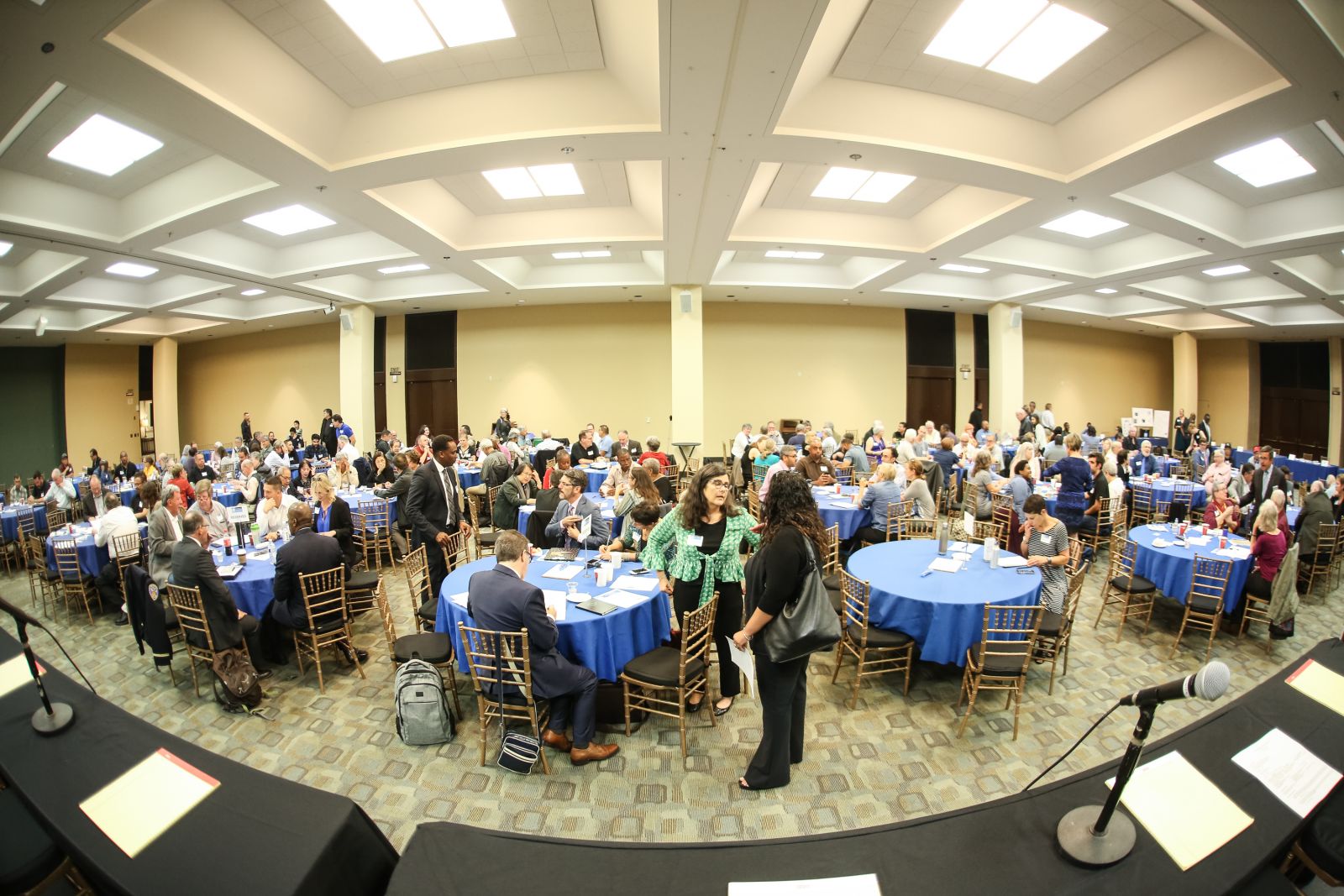 The San Francisco Interfaith Council, in collaboration with the Walter & Elise Haas Fund and the Jewish Community Relations Council, presented “Security in Houses of Worship and Faith-Based Organizations” workshop on Monday, September 9, 2019 at the Cathedral of St. Mary of the Assumption. In light of recent terrorist attacks on houses of worship around the globe and in our nation, the SFIC and its collaborating partners provided necessary resources at the workshop designed to support and equip religious institutions in addressing this critical and timely need. These resources are available at: Security in Houses of Worship Resources. Link to email blast here.
The San Francisco Interfaith Council, in collaboration with the Walter & Elise Haas Fund and the Jewish Community Relations Council, presented “Security in Houses of Worship and Faith-Based Organizations” workshop on Monday, September 9, 2019 at the Cathedral of St. Mary of the Assumption. In light of recent terrorist attacks on houses of worship around the globe and in our nation, the SFIC and its collaborating partners provided necessary resources at the workshop designed to support and equip religious institutions in addressing this critical and timely need. These resources are available at: Security in Houses of Worship Resources. Link to email blast here.
A follow-up “Communal Safety Symposium Confronting Hate Crimes and Uncertain Times” was held via Zoom on Tuesday, August 25, 2021. Link to email blast here.
Additionally, online briefings on the following related topics were held:
- March 31, 2022 – Potential Cybersecurity Threats and How to Respond As a Result of Russia’s Invasion of Ukraine
- Recording Link (3/31/2022)
- June 23, 2022 - Nonprofit Security Grant Program (NSGP)
- Recording Link (6/23/2022)
San Francisco Interfaith Winter Shelter
Entering our 36th year, the SFIC has sponsored and coordinated an Interfaith Winter Shelter for the homeless. This shelter provides a hot, nutritious dinner, breakfast and a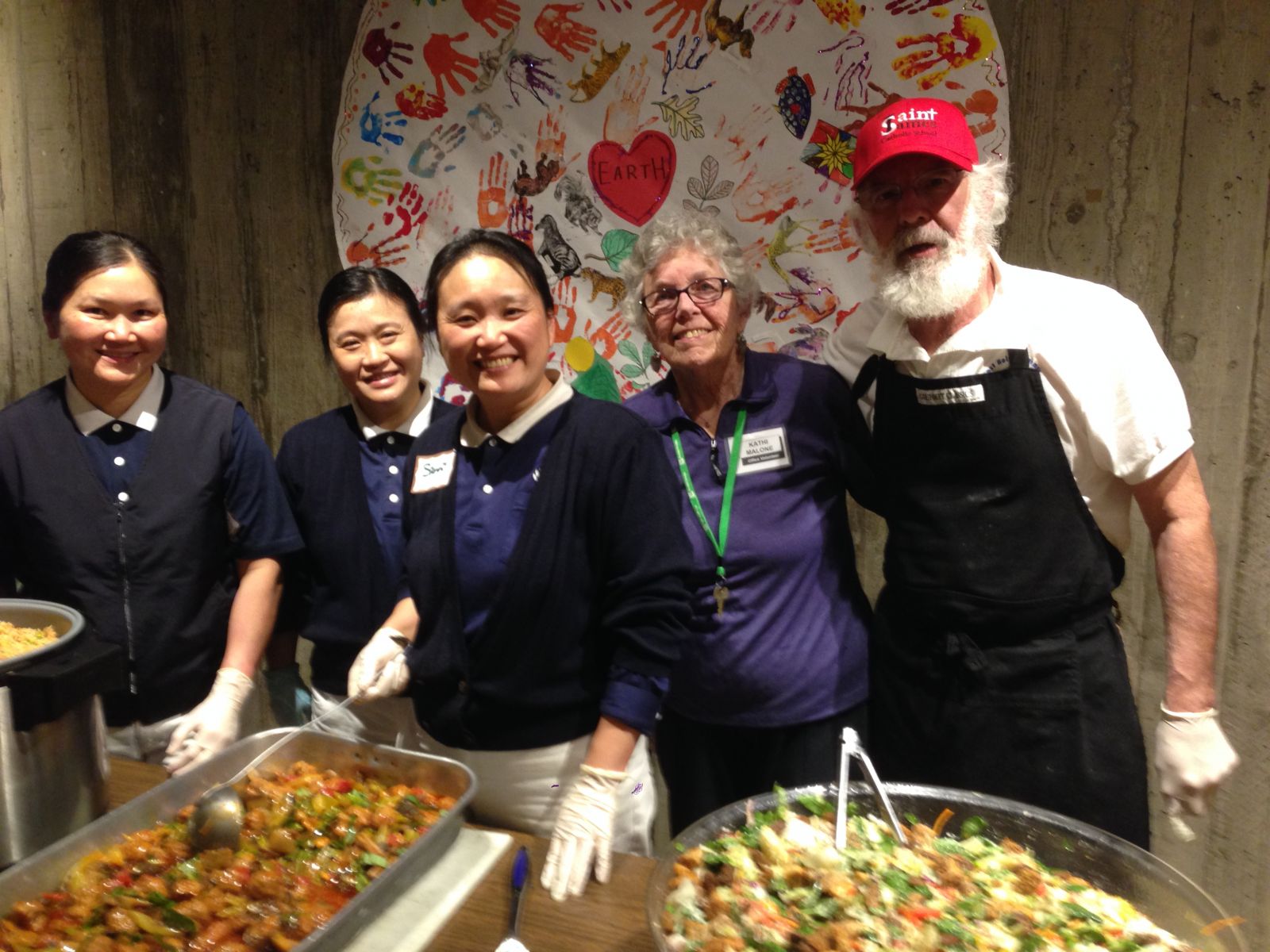
At the request of the Department of Homelessness and Supportive Housing the Interfaith Winter Shelter remained open through the end of March 2024. Extending the shelter is made possible, in large part, thanks to our partners at Episcopal Community Services and congregations who volunteer to prepare and serve meals.
The Interfaith Winter Shelter for the 2024-2025 season commenced on Monday, November 25, 2024 and will conclude Monday morning, March 31, 2025.
For additional information about the Interfaith Winter Shelter please visit: Interfaith Winter Shelter
The SFIC has created a page on their website with links to resources for the homeless.
Please visit: Homeless Resources
WinterFaith Shelter Walk
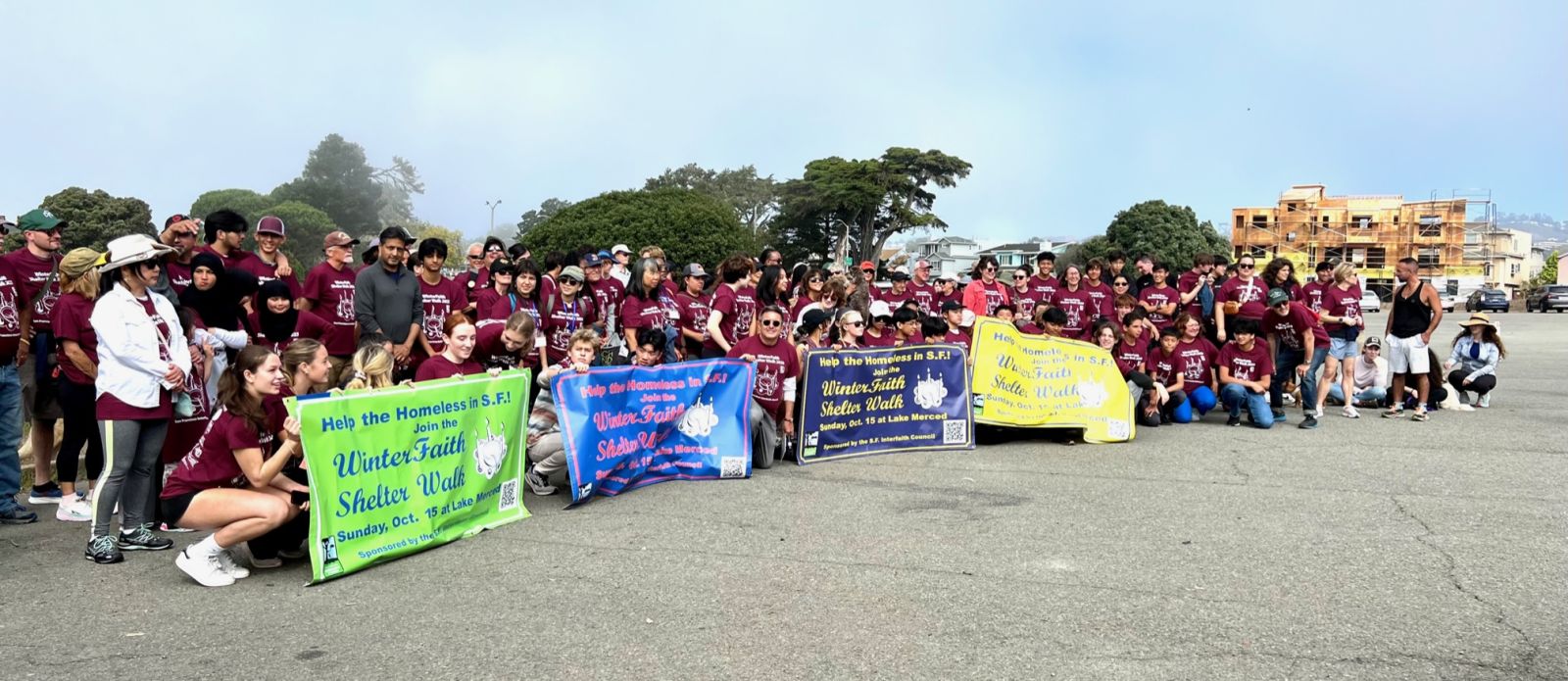 Each year the SFIC hosts a “walk against hunger” around Lake Merced. Proceeds from the walk are used to defray the cost of operating the Interfaith Winter Shelter. The 2023 Walk took place on Sunday, October 15, 2023 around Lake Merced with picture perfect weather. $30,000 was raised for the Interfaith Winter Shelter. This year's walk will take place on Sunday, April 6, 2025 around Lake Merced. For additional information please visit: WinterFaith Shelter Walk
Each year the SFIC hosts a “walk against hunger” around Lake Merced. Proceeds from the walk are used to defray the cost of operating the Interfaith Winter Shelter. The 2023 Walk took place on Sunday, October 15, 2023 around Lake Merced with picture perfect weather. $30,000 was raised for the Interfaith Winter Shelter. This year's walk will take place on Sunday, April 6, 2025 around Lake Merced. For additional information please visit: WinterFaith Shelter Walk
Rev. Dr. Martin Luther King, Jr. Day Observance and Interfaith Service
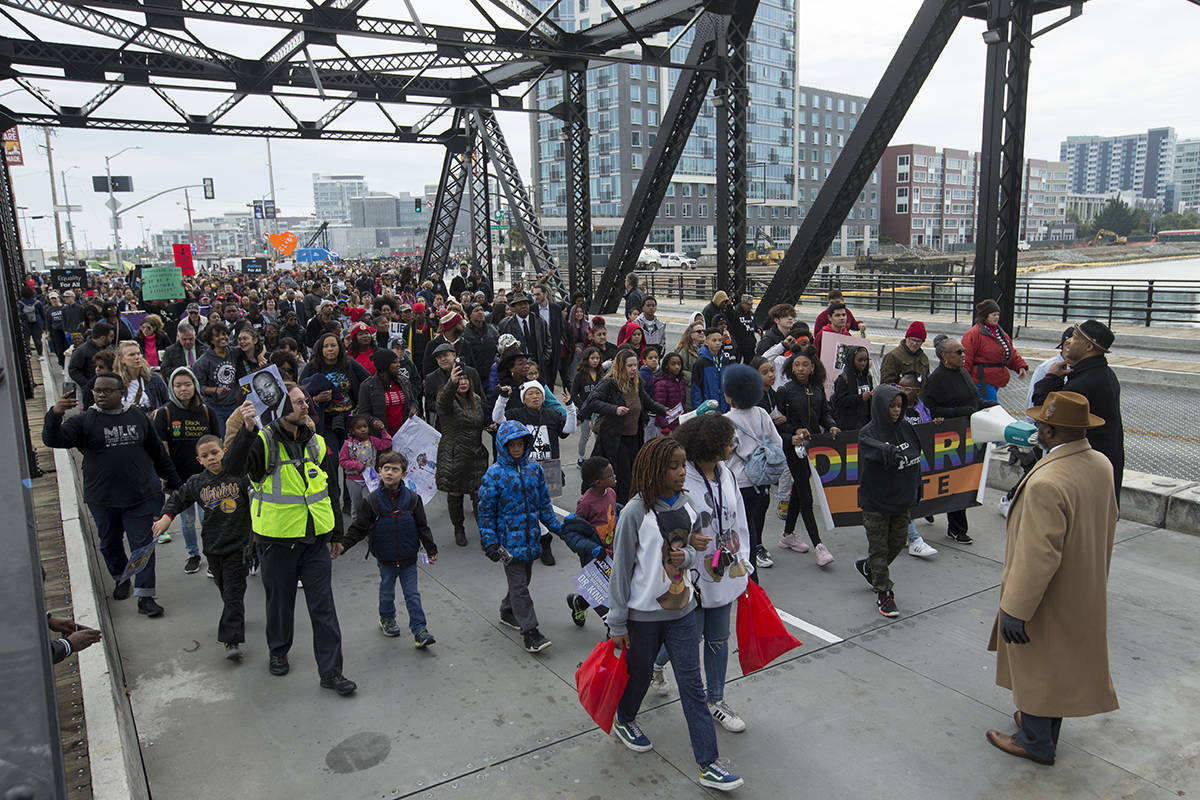
The Vigil: Interfaith Annual Homeless Persons Memorial
Every December, collaborating with the SF Night Ministry, the SFIC hosts the “The Vigil: Interfaith Annual Homeless Persons Memorial.” Religious leaders of different faiths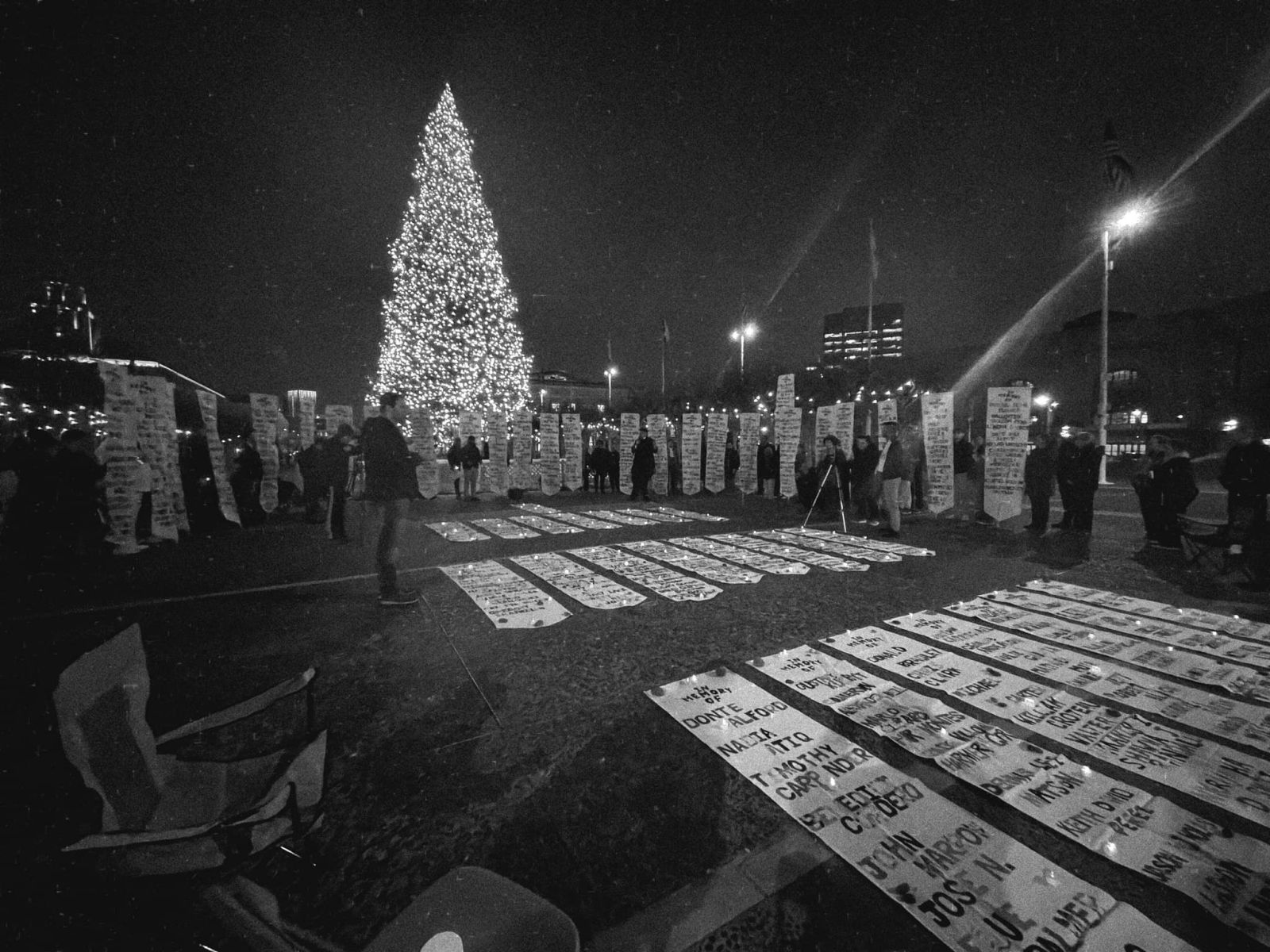 offer prayers for the homeless who have died during the past year, and their names are read. This year’s memorial service took place on Thursday evening, December 19, 2024 at Civic Center Plaza. Link to livestream video: The Vigil
offer prayers for the homeless who have died during the past year, and their names are read. This year’s memorial service took place on Thursday evening, December 19, 2024 at Civic Center Plaza. Link to livestream video: The Vigil
Annual Interfaith Thanksgiving Prayer Breakfast
Our major event of the year is the SFIC Annual Interfaith Thanksgiving Prayer Breakfast, attended by over 300 people on the Tuesday before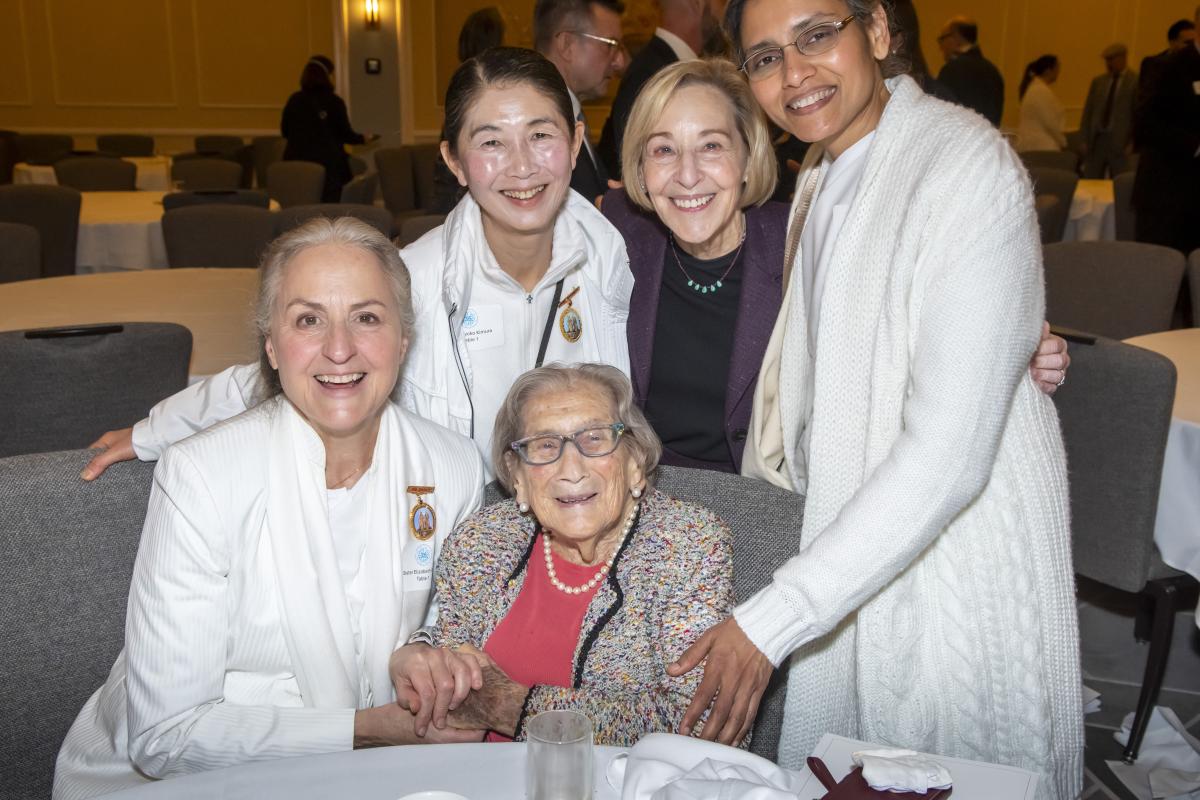 Thanksgiving. Each year we shine the spotlight on a significant contribution made by the faith community to San Francisco. This year's Prayer Breakfast was held on Tuesday, November 26, 2024 observing the 35th Anniversary of the Founding of the San Francisco Interfaith Council. Link to program and program booklet.
Thanksgiving. Each year we shine the spotlight on a significant contribution made by the faith community to San Francisco. This year's Prayer Breakfast was held on Tuesday, November 26, 2024 observing the 35th Anniversary of the Founding of the San Francisco Interfaith Council. Link to program and program booklet.
Annual Interfaith Thanksgiving Day Service
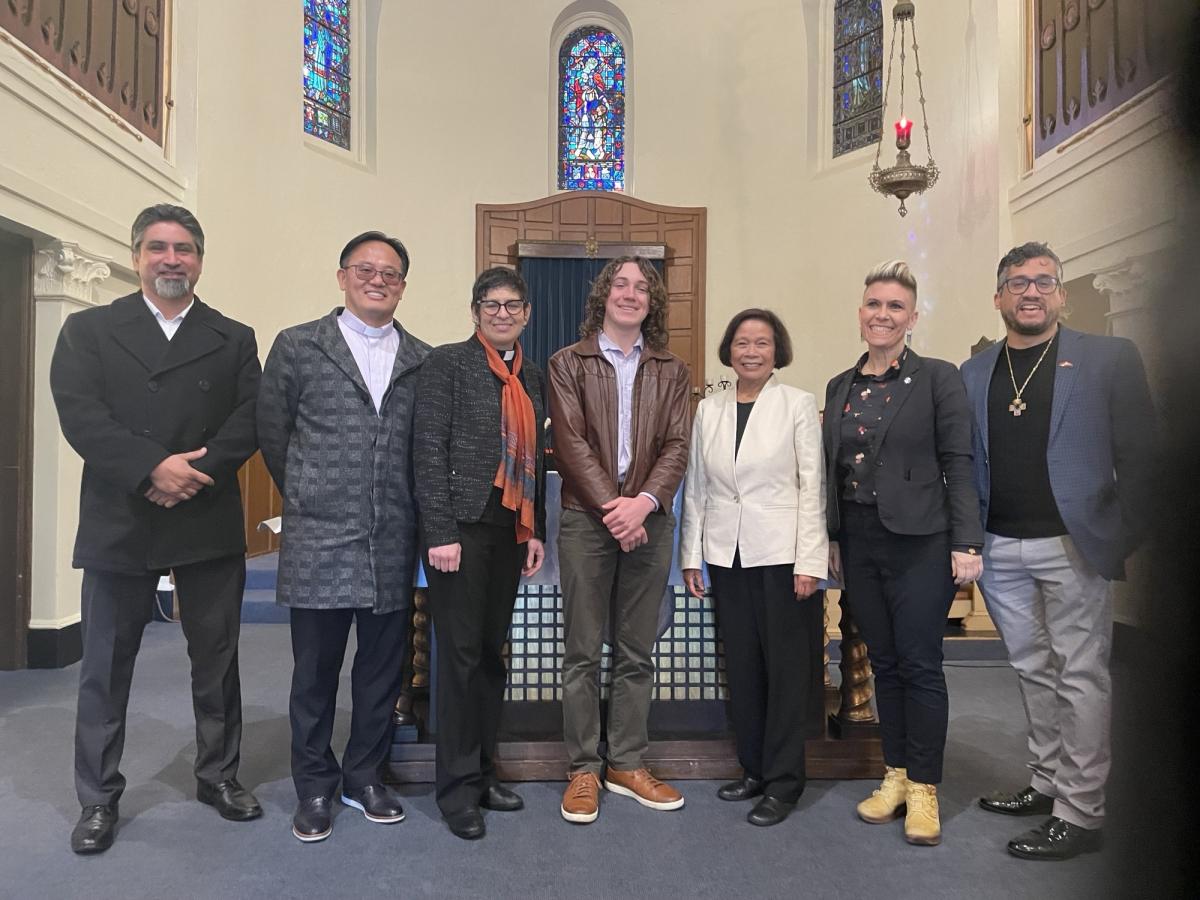 Each year, the SFIC sponsors San Francisco's only Interfaith Thanksgiving Day Service which brings together people of diverse faiths for prayer and thanksgiving. The 20th Annual Interfaith Thanksgiving Day Service on Thursday, November 28, 2024 was held at the Presidio Chapel. The offering collected at this service is used to offset the costs of the Interfaith Winter Shelter. Link to program.
Each year, the SFIC sponsors San Francisco's only Interfaith Thanksgiving Day Service which brings together people of diverse faiths for prayer and thanksgiving. The 20th Annual Interfaith Thanksgiving Day Service on Thursday, November 28, 2024 was held at the Presidio Chapel. The offering collected at this service is used to offset the costs of the Interfaith Winter Shelter. Link to program.
Convener of Faith-Based Social Service Agencies (“CEO Roundtable”)
For the past 16 years, the SFIC has regularly convened the leaders of the 20 major faith-based agencies to provide a forum to address issues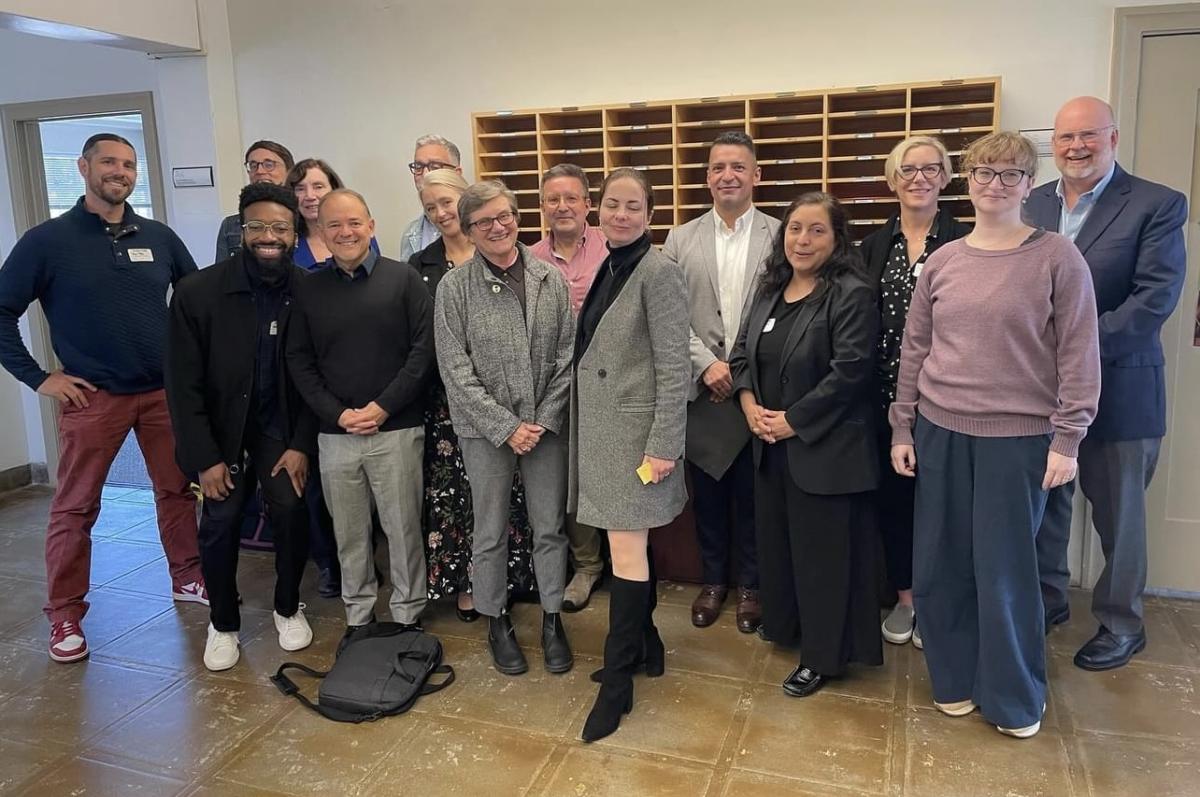 of common concern. The SFIC promotes the agencies’ collective impact and advocates on their behalf to increase the visibility of the economic challenges faced by non-profits and their clients. Since 2009 the CEO Round Table has responded with a significant unified voice to issues ranging from dramatic budget cuts and their impact on programs and staff, to San Francisco’s affordability crisis that prompted the displacement of numerous constituent agencies. Additionally, the focus is being placed on the attraction and retention of staff in light of shrinking availability and soaring housing costs. As well, the Round Table is developing a strategic response to the significant shift in federal policy priorities and the threat of funding cuts. Currently, this body is addressing the impact of COVID-19 on its respective agencies, staff, programs, clients and the neighborhoods they serve. None of this work could be accomplished by any single agency. Its continued impact has established the CEO Round Table as a major stakeholder at policy-making tables. For a list of the faith-based agencies please visit: http://www.sfinterfaithcouncil.org/social-service-agencies
of common concern. The SFIC promotes the agencies’ collective impact and advocates on their behalf to increase the visibility of the economic challenges faced by non-profits and their clients. Since 2009 the CEO Round Table has responded with a significant unified voice to issues ranging from dramatic budget cuts and their impact on programs and staff, to San Francisco’s affordability crisis that prompted the displacement of numerous constituent agencies. Additionally, the focus is being placed on the attraction and retention of staff in light of shrinking availability and soaring housing costs. As well, the Round Table is developing a strategic response to the significant shift in federal policy priorities and the threat of funding cuts. Currently, this body is addressing the impact of COVID-19 on its respective agencies, staff, programs, clients and the neighborhoods they serve. None of this work could be accomplished by any single agency. Its continued impact has established the CEO Round Table as a major stakeholder at policy-making tables. For a list of the faith-based agencies please visit: http://www.sfinterfaithcouncil.org/social-service-agencies
Interfaith Prayer Service for Mayor Daniel L. Lurie
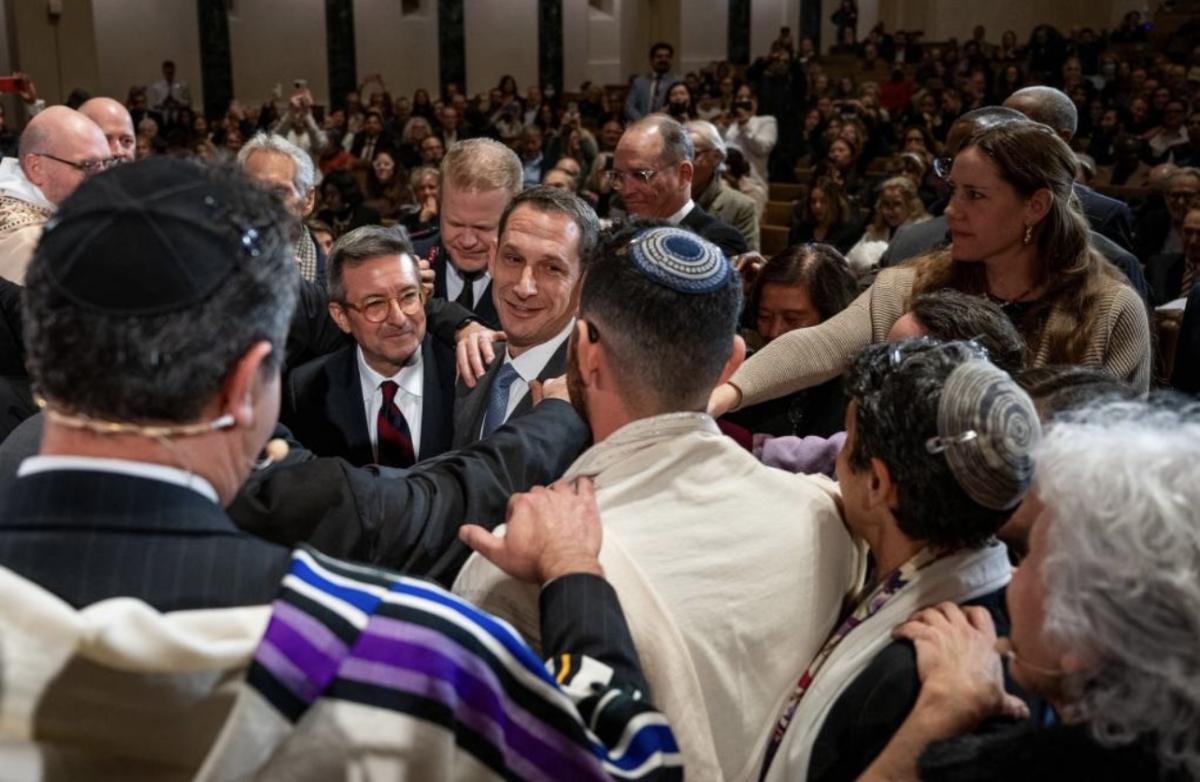 On Tuesday, January 7, 2025 the SFIC and Congregation Emanu-El co-sponsored an Interfaith Prayer Service for Mayor Daniel L. Lurie at Congregation Emanu-El with many diverse communities of faith participating. Link to email invitation:
On Tuesday, January 7, 2025 the SFIC and Congregation Emanu-El co-sponsored an Interfaith Prayer Service for Mayor Daniel L. Lurie at Congregation Emanu-El with many diverse communities of faith participating. Link to email invitation:
https://conta.cc/40enJli Program may be viewed here.
2022 JCRC Multi-Faith Freedom Seder / Ramadan Interfaith Iftar Dinner
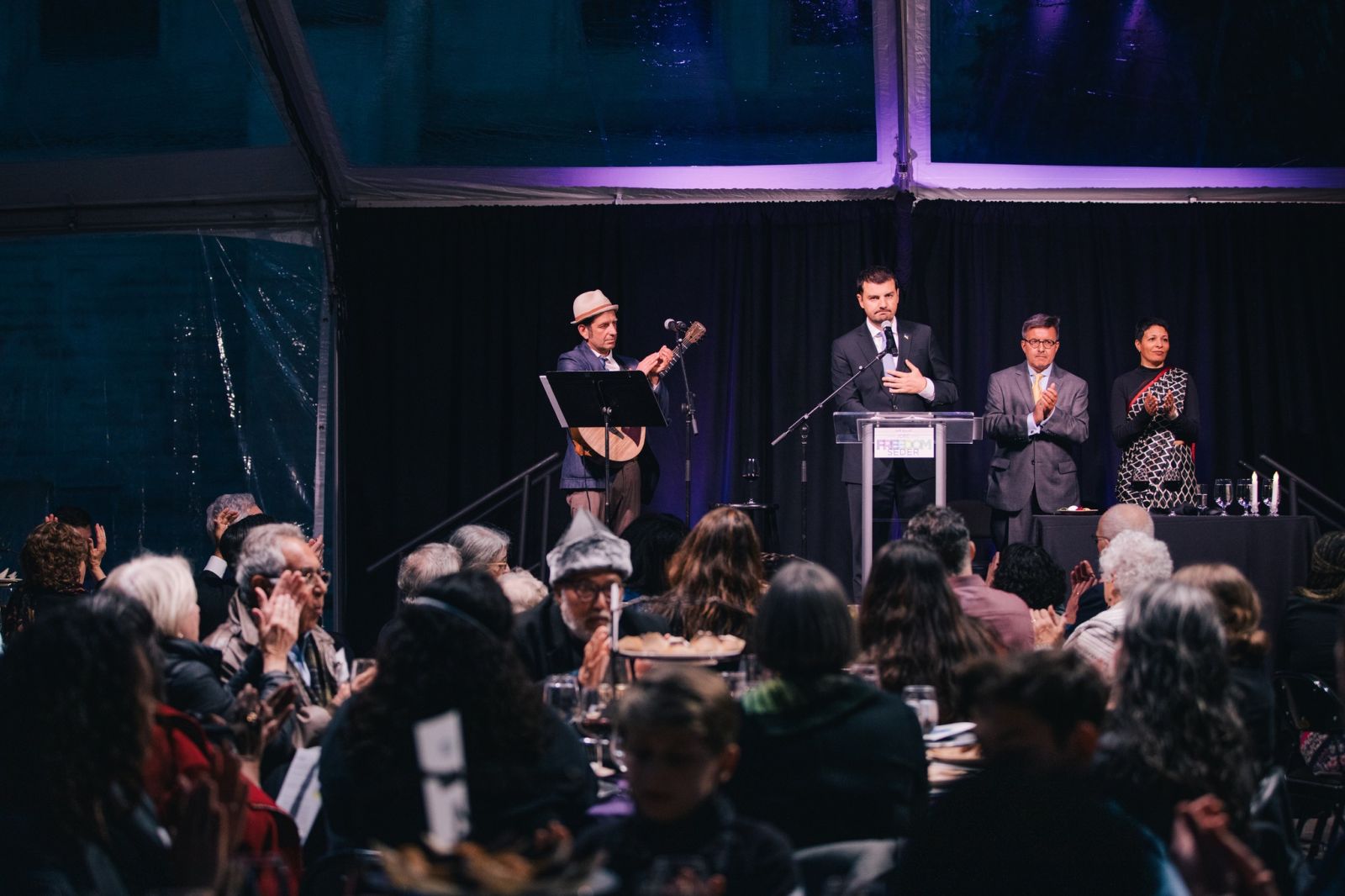 The Jewish Community Relations Council’s (JCRC) annual Multifaith Freedom Seder, has brought people from various faiths and cultures together for 26 years. It was an opportunity to build bonds and strengthen allyship among the Bay Area’s diverse communities. More than 200 people came together for the first time since 2019 at Grace Cathedral under an outdoor tent and on Zoom for a social justice and human-rights focused Passover seder, including Dmytro Kushneruk, the San Francisco-based Consul General of Ukraine. At the seder, faith leaders, government officials, activists and foreign dignitaries were asked to participate in the retelling of the Passover story and how it connects to contemporary issues. The SFIC co-sponsored this event and SFIC Executive Director Michael Pappas served as Co-Emcee.
The Jewish Community Relations Council’s (JCRC) annual Multifaith Freedom Seder, has brought people from various faiths and cultures together for 26 years. It was an opportunity to build bonds and strengthen allyship among the Bay Area’s diverse communities. More than 200 people came together for the first time since 2019 at Grace Cathedral under an outdoor tent and on Zoom for a social justice and human-rights focused Passover seder, including Dmytro Kushneruk, the San Francisco-based Consul General of Ukraine. At the seder, faith leaders, government officials, activists and foreign dignitaries were asked to participate in the retelling of the Passover story and how it connects to contemporary issues. The SFIC co-sponsored this event and SFIC Executive Director Michael Pappas served as Co-Emcee.
Ramadan: The Month of Revelation, Gratitude and Community, was observed with an Iftar Dinner, hosted by the Pacifica Institute, at sunset on April 21, 2022, also at Grace Cathedral. Recognizing the confluence of Muslim, Christian & Jewish holy observances, this interfaith coming together around a common table lifted up the Muslim virtues of prayer, fasting and charitable works, with peace as the overarching theme. The SFIC was a co-sponsor of this event and SFIC Executive Director Michael Pappas was invited to offer a prayer for peace. Link to email blast here.
2020 Complete Count (Census)
Every 10 years, the U.S. Census counts every resident in the nation. A complete and accurate count of California’s population is essential to the state because the data collected by the Census determines the number of seats each state has in the U.S. House of Representatives and is also used to distribute billions of dollars in federal funds to local communities. More than 70 federal programs that benefit California, including education, health and human services, use Census numbers as part of their funding formulas. Communities of faith are central to the count as they comprise trusted institutions and leaders that are able to identify and convey the importance of the count to marginalized and "hard-to-find" residents (e.g. undocumented immigrants and the homeless). A key challenge surrounding the upcoming count is the transition from paper to electronic surveys and related confidentiality and security concerns. SFIC Executive Director Michael Pappas was selected to participate among community stakeholders on San Francisco's highly successful 2010 Complete Count Committee and was designated to assist in the 2020 effort. An expanded role he played was to coordinate census efforts of regional religious communities participating in the The San Francisco Foundation's FAITHS Program. The SFIC received a grant from The San Francisco Foundation and was selected to host a Coro Fellow, which enabled the SFIC to develop a comprehensive Tool Kit tailored for the use of communities of faith in their outreach efforts to their congregants. Additionally, the Tool Kit provided important resources related to census employment opportunities, linguistic and technological capacities, as well as how houses of worship could become data collection hubs for census responses.
US State Department International Visitors Program Delegation Visits
The SFIC regularly hosts visiting delegations from across the globe at the Presidio Chapel organized by the US State Department International Visitors Program. Recently, the SFIC has hosted delegations from Belgium, Bulgaria, Finland, France, Germany, Malaysia, Malta, Norway, Pakistan, Poland, Republic of North Macedonia, Spain, Sweden and the United Kingdom.
Interfaith Essential Housing Efforts
With the growing scarcity of housing and climbing rents, low paid/middle income workers who provide essential services for the City are leaving San Francisco. By repurposing religious institutions’ underutilized parcels for affordable rental housing, our faith communities seek to stop the outmigration of essential services workers. At the urging of our civic partners and building upon the important work of the SF Interfaith Essential Housing Task Force, spearheaded by the Council in 2014, the SFIC continues to collaborate with City planning officials, and counsel and work closely with congregations and religious institutions seeking to repurpose their facilities to create housing units for low paid workers who provide essential services in our City. Our efforts in this arena are focused upon helping to identify prospective parcels for development, facilitating public/private sector relationships, exploring sources of pre-development funding, and connecting religious entities interested in such redevelopment projects with critical technical/professional expertise and resources.
SFIC in the News
For further articles and media related to the SFIC, we would direct your attention to the following link: SFIC in the News
Broad Civic Engagement
Because of the important stakeholder role the SFIC plays in many arenas, the SFIC has been invited to take a place at many tables. Most recently, SFIC Executive Director Michael Pappas served on the San Francisco Economic Recovery Task Force, the 2020 Complete Count Census Committee, the SF Disaster Council, and The San Francisco Foundation/FAITHS Leadership Council. He previously served on the SF Human Rights Commission, SF Aging & Adult Services Commission and was designated as its representative to the In-Home Supportive Services Public Authority Governing Body. Additionally, he was selected to participate on the Aspen Institute's cohort on religious pluralism and multifaith engagement, and also serves on a number of nonprofit boards and advisory committees.
The accomplishments listed above are the work of two full-time staff, an active Board of Directors, and dedicated volunteers. We gratefully acknowledge the funding provided by congregations, judicatories, agencies, individuals, and foundations which make these achievements and others not listed here possible.

